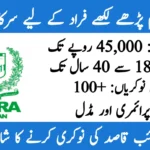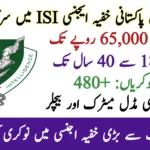Thinking about working in Saudi Arabia in 2025?
Here’s everything you need to know — explained simply — to help you understand the skilled worker visa process, from job offers to getting your Iqama (residency permit). Whether you’re an engineer, nurse, IT expert, or teacher, this guide is made just for you.
What Is a Saudi Skilled Worker Visa?
The Saudi Arabia Skilled Worker Visa is a work permit that lets skilled people from other countries legally work in Saudi Arabia. This visa is tied to an employer (called a “kafeel”) who sponsors you. It’s usually valid for 1 to 2 years and can be renewed.
With Saudi’s Vision 2030 projects growing fast, they need experts in:
-
Healthcare (nurses, doctors, lab techs)
-
Construction & Engineering (civil engineers, electricians)
-
IT & Cybersecurity
-
Oil & Gas (petroleum engineers, site workers)
-
Education & Teaching
-
Finance & Banking
Why Is This Visa So Important in 2025?
Saudi Arabia is building massive new cities and boosting tech, healthcare, and tourism under Vision 2030. To do that, they need skilled people from around the world.
Pro Insight:
Projects like NEOM and the Red Sea Project need workers fast — this is your chance to be part of something big.
Who Can Apply for the Skilled Worker Visa?
To qualify in 2025, you need to meet these requirements:
-
A Job Offer: You must first get hired by a Saudi company approved by the Ministry of Human Resources.
-
Education & Experience: You’ll need relevant degrees, certifications, or training. Most jobs need 2–5 years of experience.
-
Age: You must be 21 or older. Some jobs may have an upper age limit (like 55), but there are exceptions.
-
Clean Background: You must pass a police check.
-
Good Health: You’ll need a medical report from an approved clinic.
-
No Visa Violations: You must not have overstayed or broken visa rules in the past.
What Documents Do You Need?
Here’s a checklist to get ready:
-
Passport (valid at least 6 months)
-
Signed job offer letter
-
Work contract (signed by you & employer)
-
Degree/diploma (attested by Saudi embassy or cultural mission)
-
Work experience certificates
-
Medical report from an approved clinic
-
Police clearance certificate (recent)
-
Two passport photos (white background)
-
Filled visa application form
-
Employer’s sponsorship letter
-
Visa authorization slip
-
Proof of Saudi health insurance
How Do You Apply for a Skilled Worker Visa?
Let’s break it down into simple steps:
Step 1: Get a Job Offer
Apply directly or through agencies. Use platforms like Qiwa or Saudi job portals.
Step 2: Visa Authorization by Employer
Your employer submits your job info to the Ministry. If approved, you get a visa authorization slip.
Step 3: Get Your Medical Done
Go to a Saudi-approved clinic in your country. Tests include blood work, X-ray, and checks for diseases like TB, HIV, and Hepatitis.
Step 4: Submit Your Visa Application
Take your documents to the Saudi embassy or visa center. After checking everything, they’ll stamp the visa in your passport.
Step 5: Fly to Saudi Arabia
Once you have the visa, travel within 90 days. Your employer will pick up from here.
Step 6: Get Your Iqama
Once you’re in Saudi, your employer applies for your Iqama (residency permit). It’s your ID for work, housing, banking, and more.
Step 7: Start Working!
Once your Iqama is issued, you can officially start your job.
Expert Tip:
Never start working before your Iqama is ready. It’s illegal and may lead to trouble with authorities.
What’s New in 2025?
Saudi Arabia has updated the visa system to include:
-
Skill Categories: Jobs are now ranked (high-skilled, skilled, basic) based on salary and qualifications.
-
Qiwa Portal: Most work visa processes now go through this online system.
-
Faster Processing: Most applications are completed in 3–8 weeks.
-
Family Sponsorship: If your salary is above SAR 5,000–10,000, you can bring your family.
-
Premium Residency: Skilled pros may apply for a sponsor-free “Premium Residency.”
How Much Does It Cost?
Here’s a breakdown:
-
Work Visa Fee: SAR 1,000 (about $266)
-
Medical: $100–$200 depending on your country
-
Document Attestation: Varies
-
Health Insurance: Often covered by employer
Real Example:
Ali, a civil engineer from Pakistan, got hired by a Saudi firm for a NEOM project in 2024. His entire visa process, including Iqama, took just 6 weeks. His employer arranged housing, transport, and even helped him get a SIM card. Ali now earns SAR 12,000/month and plans to sponsor his family in 2025.
What Are the Benefits of This Visa?
-
Legal job in a tax-free economy
-
Housing, insurance, and transport from employer
-
Good career growth in fast-developing sectors
-
Option to bring family later
-
Opportunity to apply for long-term residency
People Also Ask
How long does it take to get a Saudi work visa in 2025?
It usually takes 3 to 8 weeks, depending on how fast your documents are processed.
Can I bring my family on a skilled worker visa?
Yes. If you earn above SAR 5,000 to SAR 10,000/month, you can sponsor your spouse and kids after getting your Iqama.
Is a medical test required for the Saudi visa?
Yes. You need to pass a full medical exam from a Saudi-approved clinic in your home country.
What’s the difference between a skilled and high-skilled worker visa?
It’s mostly about salary and experience. High-skilled jobs pay more and need more experience.
Can I change jobs after getting the visa?
Yes, but you need a No Objection Certificate (NOC) from your current employer and approval from the Ministry.
Final Thoughts:
If you’re qualified and looking to grow your career in a fast-moving country, Saudi Arabia might be the perfect place for you in 2025.
Personal Experience:
Many expats say the initial paperwork feels overwhelming — but once you’re there, the benefits are worth it. Employers often go the extra mile to help new hires settle in.










